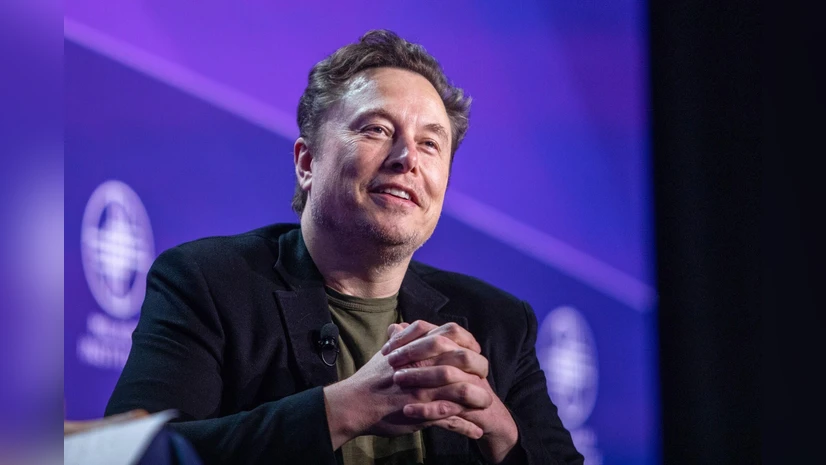BREAKING NEWS: Elon Musk, a self-proclaimed “free speech absolutist,” has launched an effort urging his 227 million followers on X — the social media platform he controls — to cancel Netflix with…….
 Elon Musk, self‑styled “free speech absolutist,” urges X users to cancel Netflix
Elon Musk, self‑styled “free speech absolutist,” urges X users to cancel Netflix
Elon Musk—who often describes himself as a “free speech absolutist”—has launched a social media campaign calling on his 227 million (or so) followers on X to cancel their Netflix subscriptions. The campaign underscores the tensions between Musk’s free speech rhetoric and the wielding of his enormous platform to advance ideological positions.
What’s happening?
Musk publicly confirmed he had canceled his own Netflix subscription after controversy surrounding the content of a Netflix children’s series, Dead End: Paranormal Park.
Business Insider
+2
The Times of India
+2
He reposted and amplified criticism targeting Netflix for allowing creators associated with transgender representation in children’s programming—accusing the platform of promoting a “transgender woke agenda.”
Barron’s
+3
The Verge
+3
Business Insider
+3
Musk’s posts have urged users to “Cancel Netflix for the health of your kids,” tapping into parental concerns to mobilize his audience.
Barron’s
+3
The Times of India
+3
The Verge
+3
In the wake of Musk’s comments, public interest in “cancel Netflix” spiked on search trends, and some users on X posted that they had acted on his instruction.
Business Insider
+1
Netflix’s share price dropped in response to the backlash—falling ~2.9% in one session—as investors reacted to the possibility of subscriber losses.
Barron’s
+1
The contradiction: free speech vs. platform coercion
Musk promoting a subscription boycott raises a paradox: he frames himself as a defender of free expression, yet is using his influence to push a content-based penalty on Netflix. Critics see this as selective free speech enforcement.
Some key tensions:
Power asymmetry
Musk’s platform gives him disproportionate reach. When he urges action against a media company, it can sway behavior in ways ordinary users cannot match.
Selective enforcement of “woke” criticism
The campaign targets LGBTQ+ representation in children’s media—a subject deeply polarizing in U.S. culture wars. Musk’s intervention reinforces a narrative about “woke content” rather than universal principle.
The Verge
+2
Business Insider
+2
Inconsistencies in his “absolutism”
Past actions suggest Musk’s free speech tolerance is not truly absolute. For instance, his platform has complied with governmental takedown requests in India and Turkey.
The Verge
+2
BizNews
+2
He has also faced criticism for censoring, deplatforming, or restricting critics under various pretexts.
The Guardian
+1
The paradox of censorship-by-encouragement
While Musk does not directly order Netflix to remove content, the call to “cancel” effectively encourages punitive economic consequences for expressive choices. That is a kind of social (or platform-induced) censorship pressure.
Why now — and why the reaction matters
The trigger was the resurfacing of posts allegedly by Dead End creator Hamish Steele. Some screenshots claimed he mocked the mourning of conservative figure Charlie Kirk, prompting outrage.
Barron’s
+3
The Times of India
+3
Business Insider
+3
The broader framing—resentment toward “woke content”—resonates with a segment of Musk’s base and right‑leaning cultural critics.
For Netflix, the timing is risky: the platform is already under pressure from content costs, competition, and churn. A mass cancellation could impact its bottom line.
The episode serves as a test case: can one individual’s influence reshape media norms by rallying mass action?
What to watch
Netflix’s response
Will Netflix defend the content, issue a statement, or make changes to appease critics?
Subscriber impact
Are there measurable cancellations (beyond performative social media claims)?
Broader precedent
If Musk (or other platform owners) routinely mobilize user bases to boycott media outlets, it shifts the balance of influence in public discourse.
Consistency of free speech claims
Observers will closely watch whether Musk supports unfettered speech even when it’s unflattering to him personally.
Conclusion
Elon Musk’s call to cancel Netflix reveals a deeper tension between the notion of free speech absolutism and the real-world weight of his platform. While he frames his campaign as a defense of children and a rejection of ideological overreach, the act of steering his mass audience toward economic retaliation highlights the challenges of reconciling power, speech, and principle.
If you like, I can send you different versions of this article (for a blog, a newspaper op-ed, etc.), or dig into counterarguments. Would you like me to do that?
Recent news about this topic
Business Insider
Elon Musk says he canceled his Netflix account — and urges his followers to as well
Today
Barron’s
Netflix Stock Drops Again. Elon Musk Is Still Slamming the Streamer.
Today
The Verge
Elon Musk is leading a pressure campaign to make Netflix un-woke
Today